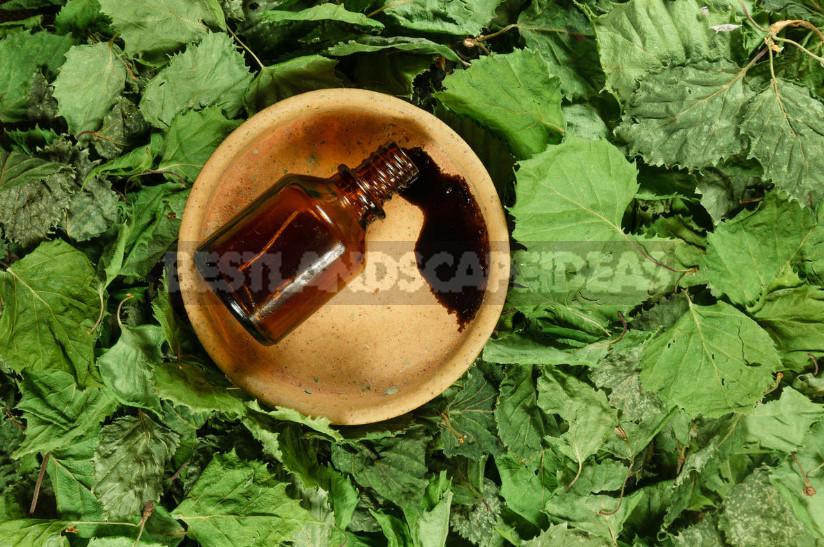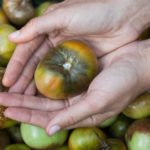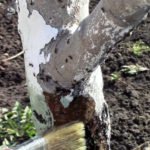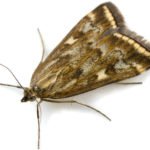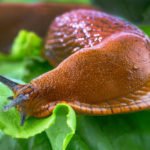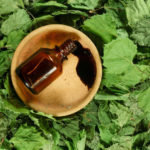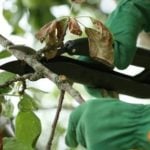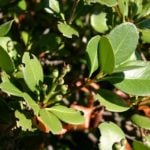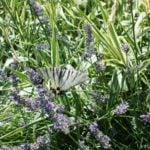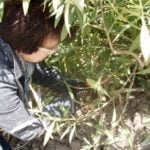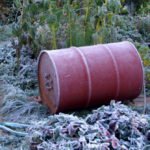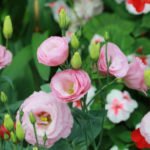11. Raspberry-strawberry weevil
Blackened flowers and a dried ovary on the bushes of strawberry garden indicate the presence of raspberry-strawberry weevil. To exclude such an unpleasant phenomenon, moisten the bushes abundantly with a tar solution (2 tablespoons and 30 g of soap per 10 liters of water), after the procedure in the budding phase 2 times with an interval of 5-7 days.
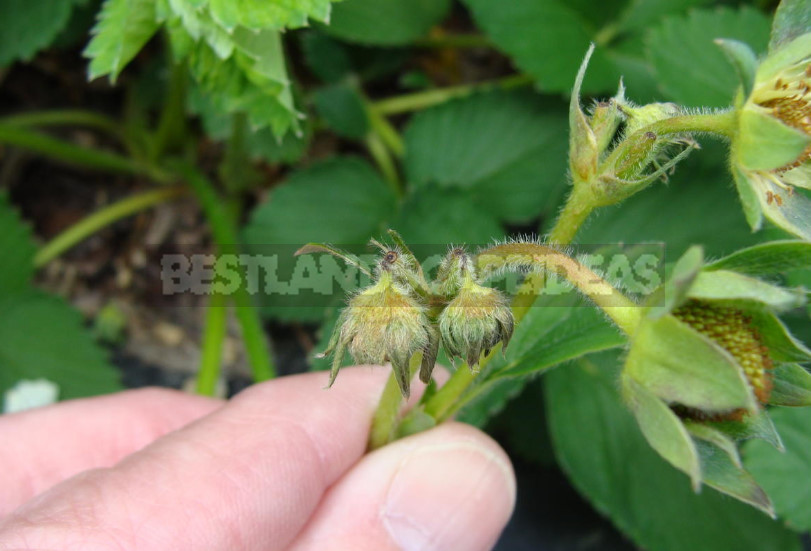
And do not forget that by scaring the weevil from the strawberry plantation, you can provide a “service” raspberries, blackberries or wild rose, which will spread the beetle. Therefore, before flowering treat a couple of times this tool and these berries.
12. Cherry weevil
If last season cherry weevil caused significant damage to your garden, next spring be sure to spend for cherries, cherries and other stone cultures tar aromatherapy, which will not harm you or the environment, but will reliably protect the trees from this pest.
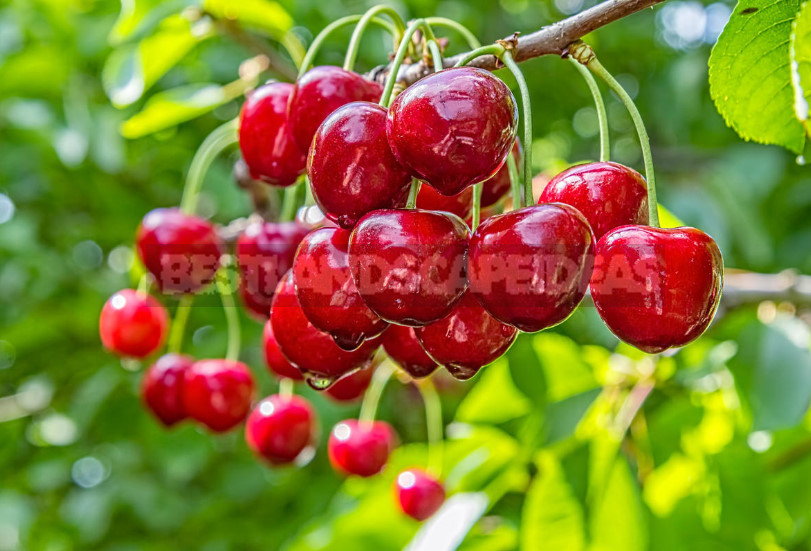
To do this, dissolve 1 tablespoon of birch tar and 1/3 bar of soap in a bucket of water and thoroughly moisten the trees from the sprayer with such a fragrant solution. The procedure should be carried out in early spring before Bud break, repeat with Bud break and shortly before flowering.
13. Aporia crataegi
Larvae of Aporia crataegi “operate” on Apple trees, pears, plums, cherries, apricots and other cultures of the family Rosaceae, actively eating buds, young leaves and buds.
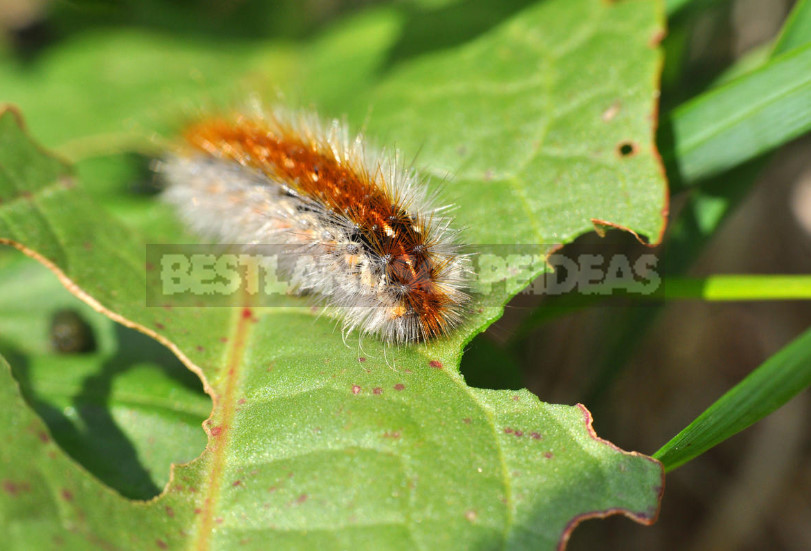
In order to protect the garden from this harmful insect, conduct a series of treatments of trees with a solution based on 20 ml of tar, 1/2 bar of soap and 10 liters of water. The first treatment is carried out in the phase of “green cone”, the second – shortly before flowering, and subsequent immediately after flowering at intervals of 2 weeks (depending on the presence of caterpillars).
14. Plum moth
In our country, the plum moth is widespread, the larvae of which significantly reduce the quality and quantity of the harvest of plums, eating the flesh from the inside and causing the fruits to crumble to the ground ahead of time.
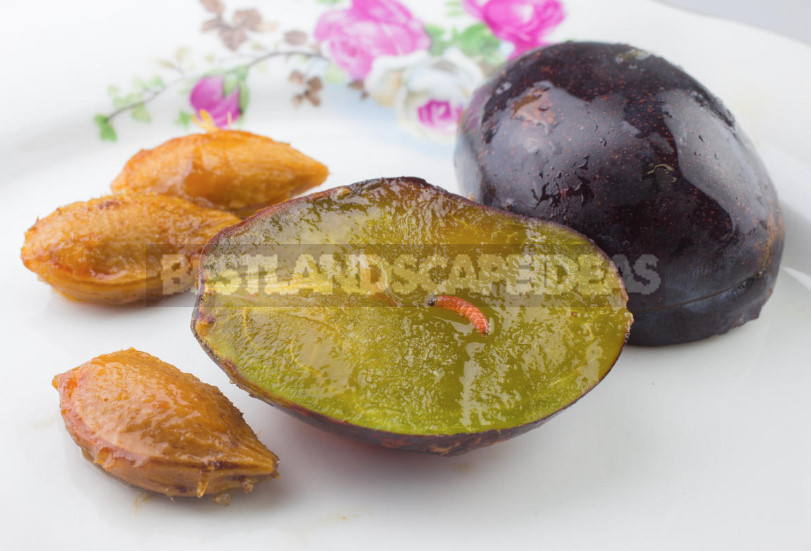
To protect the plums from this pest, immediately after flowering, spray the trees with a tar-soap solution. To prepare it, dissolve 0.5 bar of soap in a bucket of water (10 l), after rubbing it on a grater, and add 20 ml of tar. Repeat the procedure after 5-7 days, and then again after 3-4 weeks.
15. Aphis
For the voracious aphid “every weather is a blessing”, and all gardeners know firsthand how quickly this insect and in the heat, and in the bad weather turns young shoots into ugly squiggles. However, this malicious bug has a weak point – it can not stand the smell of birch tar.
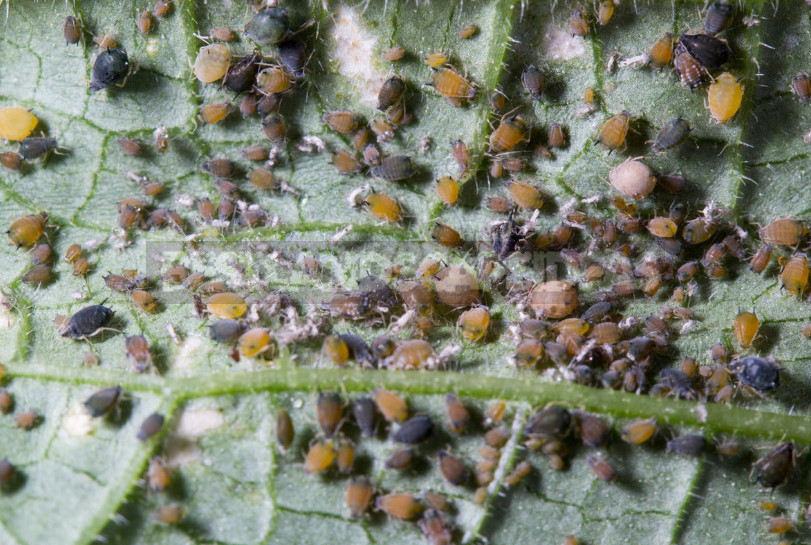
To get rid of insatiable aphids, you need to spray the affected plants with tar solution 2 times at intervals of 5-7 days. To do this, grate 0.5 bars of tar soap and dissolve the chips in 1 liter of hot water, and then add 1 tablespoon of birch tar to the soap solution. 0.5 l of such a mixture pour into a bucket of water and moisten the leaves and shoots with plenty of liquid.
16. Ants
Birch tar will help to deal with the nearest “friends” aphids – ants. To discourage them grazing their “cows” from garden plantations, wrap the trunks of trees and the base of the branches of shrubs with rags soaked in pure birch tar.
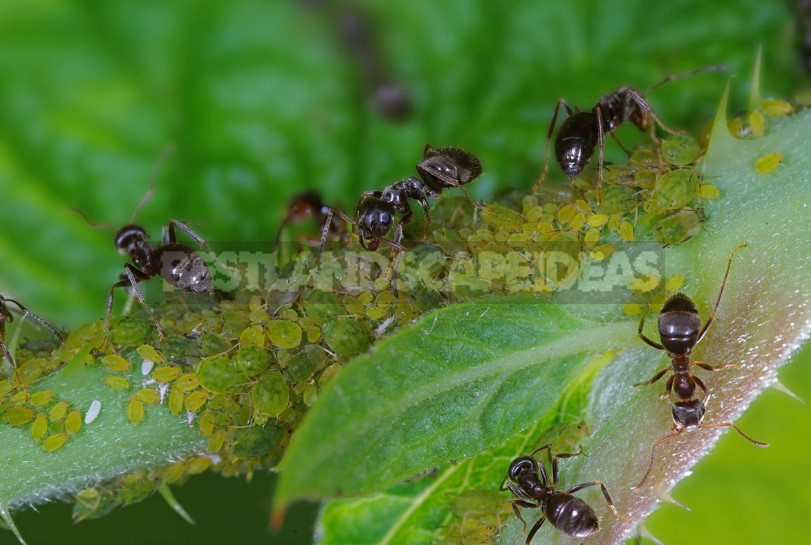
A “garden” ants can be driven from the beds in another way: pour on top of the anthill 1-2 ml of pharmaceutical preparation. Insects immediately begin to pack their Luggage and go on a long journey.
17. Moles
What to do with pests is clear. But the gardeners have other garden enemies, such as moles. Their active underground activities they cause significant damage to the health and sometimes life of garden plantations.
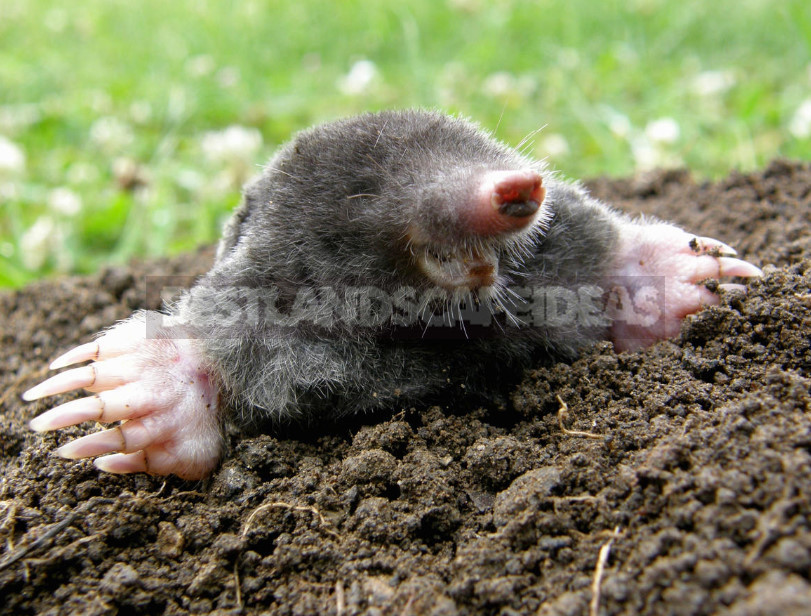
To get rid of these intruders from the area, mix 1 Cup of tar and 1/3 Cup of vegetable oil and soaked in this emulsion the pieces of cloth. After that, dig out all the moles that you will find on the site, put in each turn a fragrant rag and fill the holes with earth. After such “aromatherapy” moles quickly leave the occupied territory.
18. Mice and hares
The long-lasting aroma of birch tar is successfully used to protect fruit trees from damage by rodents in the winter. If the danger comes only from voles, the tree trunks of young trees with tender bark simply mulch sawdust impregnated with tar solution (1 tablespoon per 10 liters of water).
And if your garden is also operated by hares, then a more reliable means will be a fragrant whitewash mixture, which is prepared from 8 liters of water, 1 kg of chalk, 1 kg of manure and 3 tablespoons of birch tar. The solution should be brought to the consistency of sour cream and whitewash them with strains and lower skeletal branches.
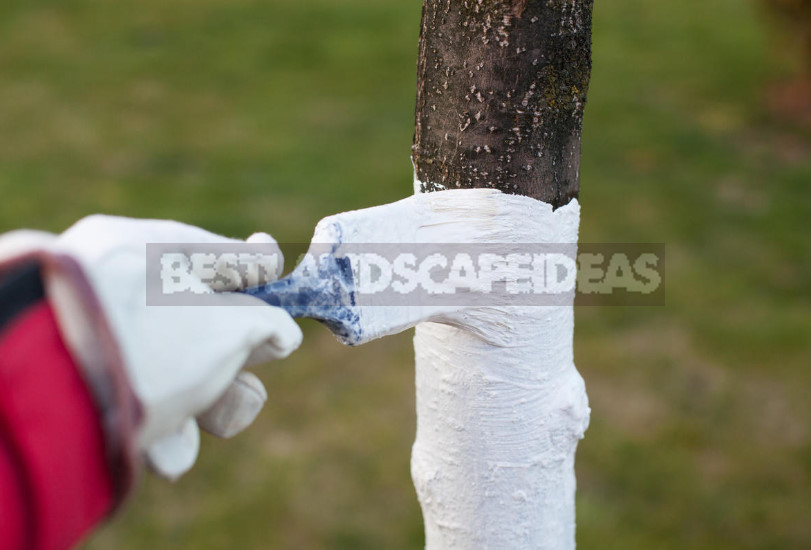
Birch tar has an oily consistency and poorly soluble in cold water. Therefore, preparing solutions for spraying or root watering, first dissolve it in a small amount of hot water, and then pour into a container with cold water. The effect of such a fragrant means will not take long to wait, and you will soon be able to collect a generous harvest of organic vegetables and fruits, protecting it from the encroachments of countless companies of garden pests.
Buy tar can not only in the pharmacy, but also in some garden shops.
Dear readers, do you use birch tar in your country? Share in the comments your recipes and tell us how effective was this drug when used in your garden.
